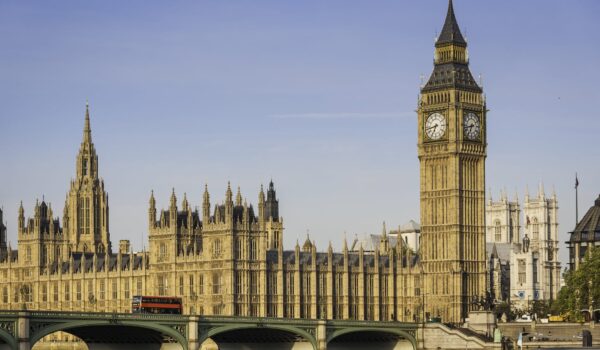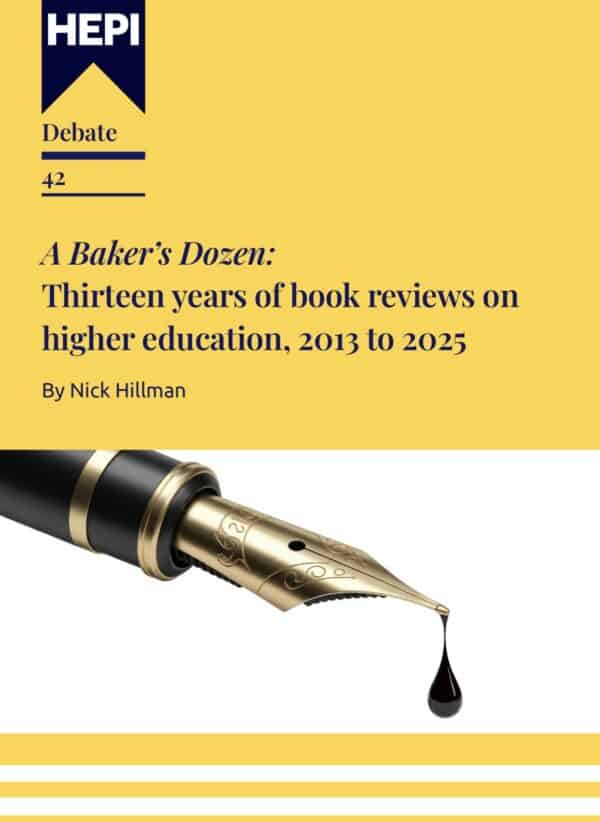Universities’ role in global conflict
With the UK Government moving to a posture of ‘war fighting readiness’ amid intensifying global conflict, a new HEPI Policy Note warns higher education remains an untapped asset in national preparedness.
The Wartime University: The role of Higher Education in Civil Readiness by Gary Fisher argues UK universities must be recognised as central pillars of national security and resilience. The paper highlights how higher education institutions represent a ‘composite capability’ to enhance and sustain civil readiness, spanning defence, health, skills, logistics and democratic continuity, but warns this potential remains under-recognised and poorly integrated into emergency planning frameworks.
Drawing on historical precedents, the current example of Ukraine and existing UK sector capacity, the report shows that universities are not only vulnerable in times of crisis but also indispensable. From supplying military officers and advancing defence research, to hosting community aid centres and strengthening democratic resilience, higher education institutions already operate across domains critical to national preparedness – and the new Policy Note covers a range of existing examples.
Without clearer policy design however, the diffuse capacity across the UK higher education sector risks remaining fragmented and under-leveraged.
Key findings
- UK universities are deeply embedded in civil society, employing nearly 400,000 staff and educating 2.9 million students, making them vital infrastructure for resilience.
- In Ukraine, universities have sheltered civilians, documented war damage, sustained research under bombardment and mobilised international partnerships. By operating beyond traditional diplomatic channels, they have acted as an extra-governmental network for aid, collaboration and civic stability. In doing so they have offered a powerful model of how higher education can serve as a stabilising force in wartime.
- UK higher education institutions already contribute to health security, food security, civic coordination and defence training, but lack formal integration into the UK’s national emergency frameworks.
- Without clear protocols, universities risk being sidelined in future crises, squandering their potential as trusted, distributed hubs of civic resilience.
Dr Gary F. Fisher, author of the report, said:
‘When the UK talks about war readiness, attention goes straight to the armed forces. Yet history shows our universities have always been central to national resilience through roles such as the development of military technology and the preparation of service personnel.
‘Today, the role of universities is even broader. They combine expansive research power with civic trust and global networks. If government fails to substantively integrate higher education into preparedness planning, it risks leaving one of our strongest assets untapped.’
Nick Hillman, Director of HEPI, said:
‘Sadly, the world is a much less safe place than it was.
‘At the launch of the Strategic Defence Review over the summer, the Prime Minister said the UK is “moving to warfighting readiness”. History shows UK universities have an important role to play, including in training the military and helping veterans, delivering health security and serving as a critical source of democratic resilience.
‘This original and thought-provoking paper reminds us what is at stake. It urges policymakers to think more about the role of universities in resilience planning, while also recognising that it is the autonomy and independence of our universities that makes them such trusted sources of information.’
Notes for Editors
- HEPI was founded in 2002 to influence the higher education debate with evidence. We are UK-wide, independent and non-partisan. We are funded by organisations and higher education institutions that wish to support vibrant policy discussions, as well as through our own events. HEPI is a company limited by guarantee and a registered charity.








Comments
Jonathan Alltimes says:
The report makes no reference to the idea of the command economy, whose after effects where still made known through the Cold War until it came to an end in the 1980s.
It also does not refer any of the publications about universities and the Second World War, for example, the Official History of Second World War, United Kingdom Civil Series.
“That organisation functioned as a part of the secretariat at 10 Downing Street and was managed for the Prime Minister by Lord Cherwell, who in December 1942 was appointed Paymaster-General. From every point of view it was highly unorthodox. It had grown out of the statistical service which in the first eight months of the war Lord Cherwell (Professor F. A. Lindemann as he then was) had run in the Admiralty for the benefit of the First Lord. When fully deployed in association with the War Cabinet Secretariat, it consisted of a group of young men from the universities trained either as economists or scientists, who appeared to enjoy a roving commission over the entire field of war government and administration. Being what they were and doing what they did, Lord Cherwell and his ‘boys’ could not help becoming unpopular; in one or two fields their activities may also have turned out somewhat unremunerative. Yet, taken as a whole, their work meant a great accession to the Prime Minister’s knowledge and grasp of what was going on in the departments and to his command over relevant facts and considerations. They may thereby have duplicated some of the work done by the other economic and scientific agencies of central government; they may sometimes have disturbed the orderly sequence of stages by which official advice normally comes to prime ministers. But to paraphrase a contemporary verdict, they helped to infuse logic into the Prime Minister’s logistics. They certainly reinforced it with technical and statistical argument. To this extent they could claim some credit for the miracle of Britain’s Government in the war: a Government which was largely personal and yet free from the intellectual limitations of an autocracy.”
Source: British War Production, 1952.
Hopefully, none of you will experience harassment or intimidation at your places of work, residence, social events, and trade.
Reply
Add comment